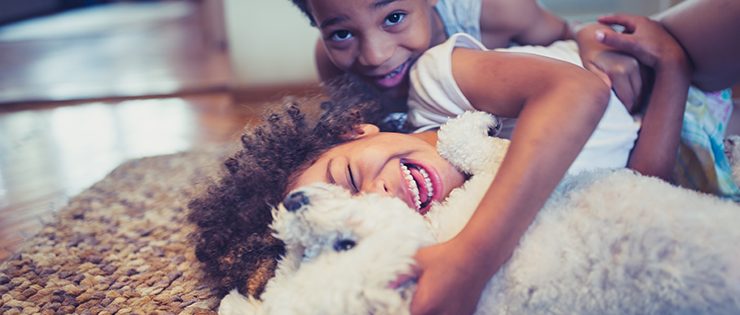
I remember the moment very clearly. My wife and I had been out all day and we came home to find our young (primary school aged) son, terribly upset.
After years of resisting repeated requests from him and his older sister to expand our family with the addition of a dog, we eventually surrendered and agreed to a goldfish. Now this might seem like a poor “second place” given the desire was for a puppy, but we thought it would be a good trial to see how he coped with the (relatively manageable) responsibilities of caring for a pet.
Anyway, to cut a long story short, and as you may have guessed, said fish died and our son, who’d taken his responsibilities quite seriously, was devastated. Having four healthy and living grandparents and several healthy and living uncles and aunties, it was the first death he’d experience in his (admittedly) short life.
And this is the case for many young children. Many pets, with whom many children become very close and affectionate and for whom they often have very strong feelings of attachment, unfortunately don’t live forever.
But this need not be a bad thing; in fact, it provides a very real and very important opportunity for parents to teach their children a number of vital life lessons.
To begin with, it’s a timely reminder that sadness and grief (two of the so called “negative emotions”) are perfectly normal and appropriate at times. This is something we often forget as it’s easy to fall in to the trap of wanting to feel good and happy all the time; and wanting our children to be happy all the time. But clearly that’s not realistic. Sadness, especially after the loss of a loved one (including a pet) is a normal and healthy response and should be remembered and acknowledged as such.
That being said, it’s important not to assume what your child is or might be feeling! And this is another important reminder. We all react differently to different situations; even death. And there’s not necessarily any right or wrong responses. Accordingly, talk to your children and ask them about what they’re experiencing. While doing so, don’t forget to be present and to really listen.
What’s most likely to come out of this, if anything, are questions about death and heaven; where is [pet] now? And what happens to [pet] after she’s buried?
Your responses to this will obviously vary depending on your religious and cultural beliefs. But in short, my advice would simply be to be as honest as you can be in an age-appropriate way.
One thing that very much helped my son was to create a ceremony around the burial. This was much easier for a goldfish than it might have been for a cat or dog, but the basic idea would still apply. We created a short funeral type ceremony and involved him as much as he wanted to be involved; and we allowed him to say as much as he wanted to say. We spent some time reflecting on they joy [pet] brought in to our lives and we acknowledged the sadness we felt now that he’d left.
Other ideas include collecting photos of your pet to remember happy times and / or creating a scrap book of memories to be kept forever. Focusing on all the fun and happiness shared together can very effectively mitigate sadness and help manage grief.
In conclusion, loss is an inevitable part of life and sadness or similar emotions are to be expected when loss is experienced. Your child will almost certainly feel this loss, but at the same time, they’ll almost always also demonstrate their resilience. It’s OK for them to not be OK for a while; and it’s a parent’s job to let them know that.